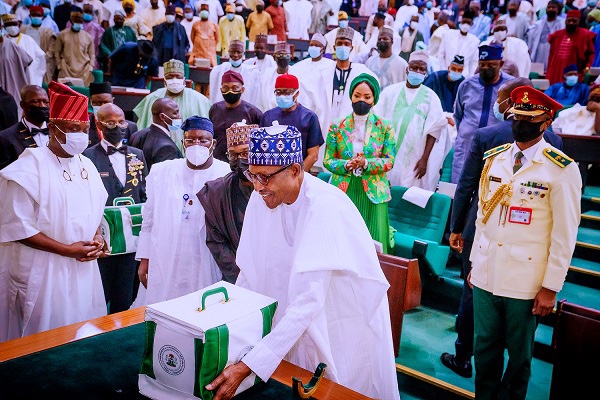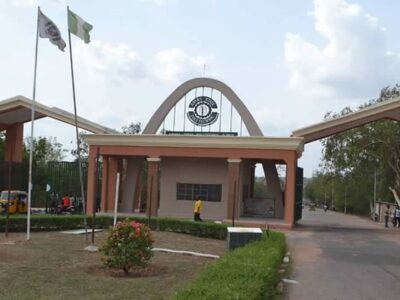The Federal Government is projecting 3.7% growth in Nigeria’s Gross Domestic Product (GDP), 17% inflation rate and 1.69 million barrel daily oil production in next year’s budget estimate.
President Muhammadu Buhari is scheduled to lay the N19.76 trillion 2023 Budget estimates before lawmakers at a joint session of the National Assembly by 10 am on Friday.
The government is pegging the oil price at $70 per barrel in the Appropriation Bill that has between N11.30 trillion and N12.41 trillion deficit.
The scheduled presentation is contained in a Presidential memo sent Senate President Ahmad Lawan and House of Representatives Speaker Femi Gbajabiamila.
The memo was read in both chambers of the National Assembly at plenary yesterday.
According to Lawan, the presentation by the President would be at the temporary chamber of the House of Representatives.
He said arrangements would be made to accommodate all the senators, who would proceed to the presentation venue in procession.
The choice that would be made by the Federal Government on the subsidy payment would determine the amount of deficit in the proposed Appropriation Bill.
At the 2023-2025 Medium Term Expenditure Framework and Fiscal Strategy Paper (MTEF/FSP) interaction with the Senate Committee on Finance, the Minister of Finance, Budget and National Planning, Mrs. Zainab Ahmed, gave a breakdown of the aggregate expenditure of the N19.76 trillion for the next fiscal year.
According to her, the federal government was projecting a total revenue of N8.46 trillion, out of which N1.9 trillion was expected to come from oil-related sources and the balance from non-oil sources.
Mrs. Ahmed explained that the benchmark crude oil price was pegged at $70 per barrel and at an exchange rate of N435.57 to a dollar, oil production was put at 1.69 million barrel per day, Gross Domestic Product (GDP) growth was projected at 3.7 per cent while inflation was put at 17.16 per cent in the MTEF.
She said petrol subsidy would remain up to mid-2023, based on the 18-month extension announced early 2021, in which case only N3.36 trillion would be provided for it in the 2023 budget.
The minister also said the budget deficit will be determined by government’s decision on the payment of petrol subsidy.
She put the deficit at between N11.30 trillion and N12.41 trillion.
Mrs. Ahmed, however, said she may not be able to make provision for treasury funded capital projects in the 2023 fiscal year.
The minister also pointed out that Nigeria has been able to consistently service its debts without defaulting, adding that the country does not have any projections even in the near future, to fail in its debt obligation.
Mrs. Ahmed noted that although the amount currently used to service the country’s debt had overshot what was appropriated for in the budget, measures have been put in place to manage the situation.
She added: “Overall, fiscal risks are somewhat elevated, following weaker-than-expected domestic economic performance and structural issues in the domestic economy.
“Crude oil production challenges and PMS subsidy deductions by NNPC constitute a significant threat to the achievement of our revenue growth targets; as seen in the 2022 Performance up to April.
“Bold, decisive and urgent action is urgently required to address issues of revenue underperformance and expenditure efficiency at national and sub-national levels.
The Nigeria economy has despite these challenges sustained its recovery from recession for the sixth quarters. While Q1 2022 was 3.11 per cent, this has appreciated to 3.54 per cent in the second quarter of 2022. Most sectors of the economy record positive growth.” (Nation)










Comments